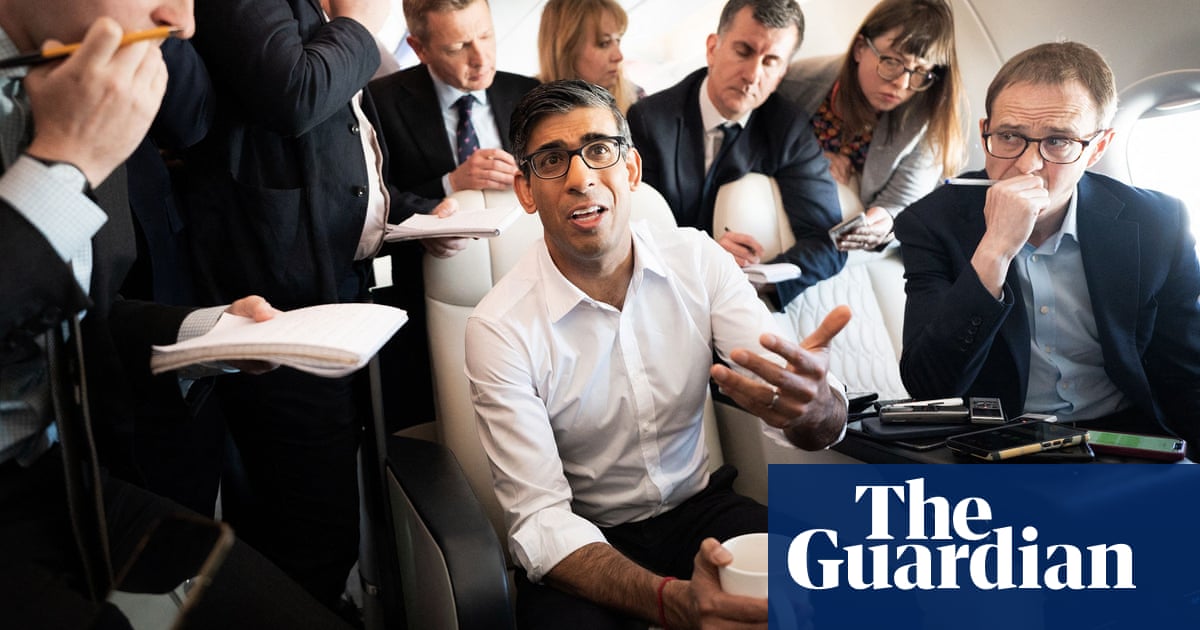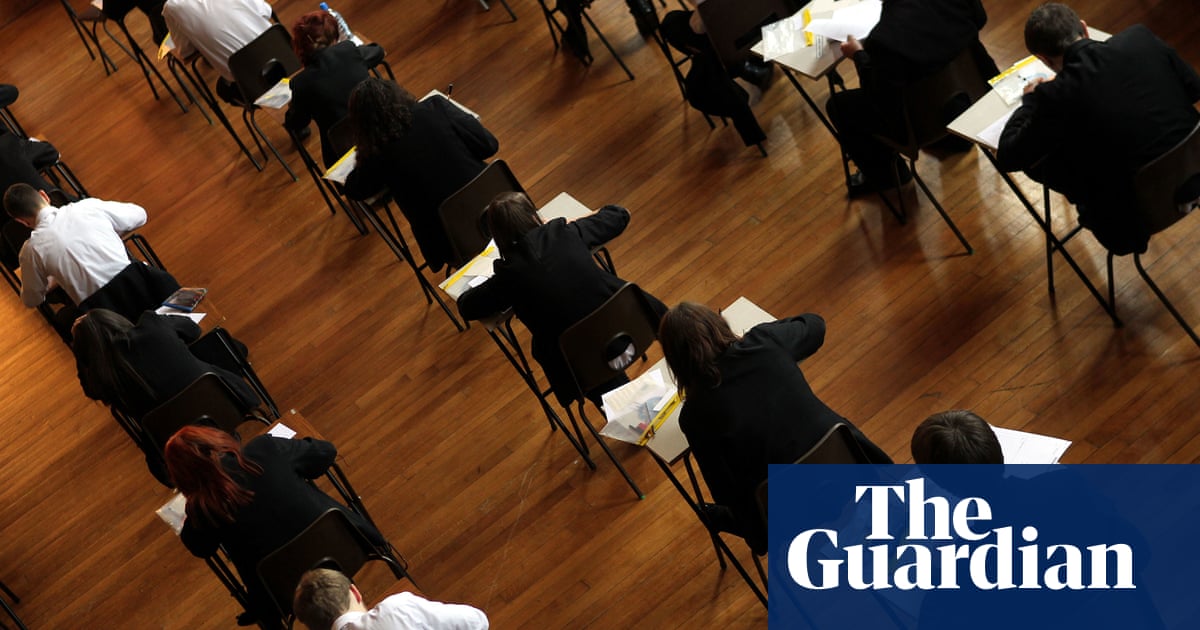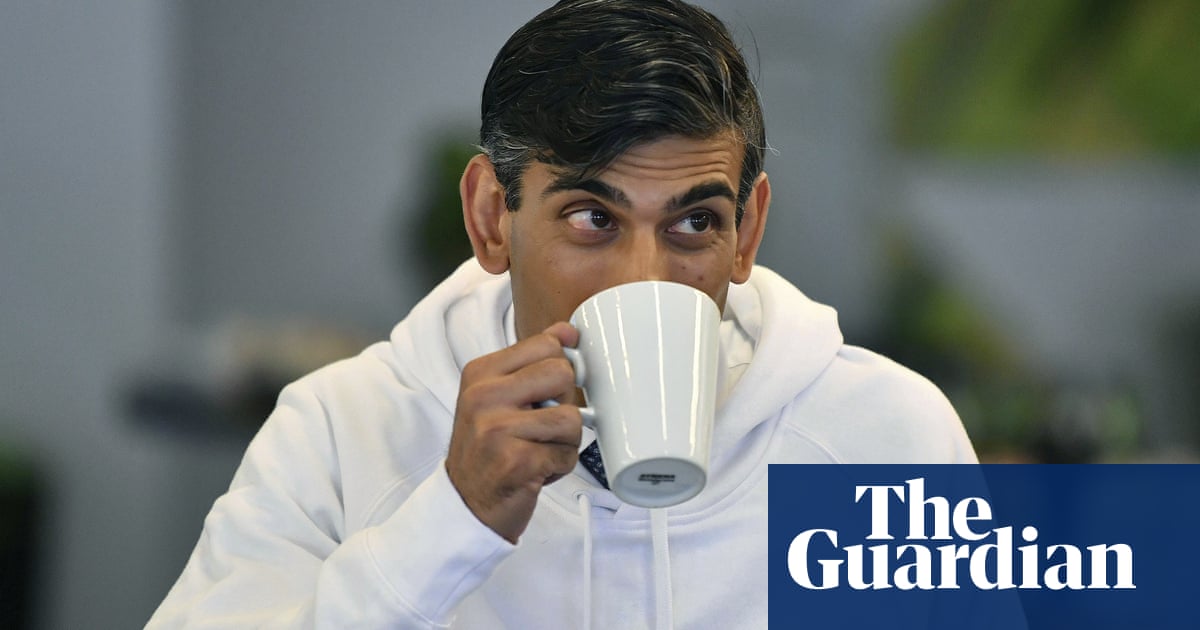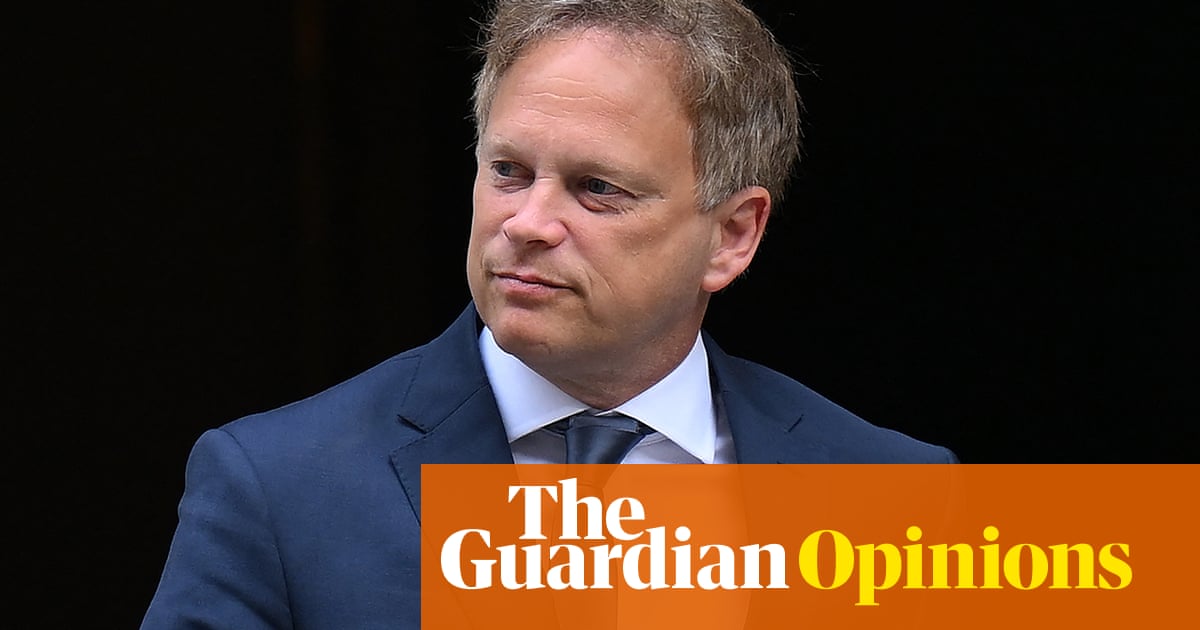
Rishi Sunak has been accused of being out of touch with ordinary families after claiming the economy was looking up and people’s household incomes were “hugely outperforming” expectations despite the cost of living crisis.
On a flight to Japan for the G7 summit of world leaders, the prime minister said that despite consumers struggling with high inflation and the cost of food and energy, there were “lots of signs that things are moving in the right direction” with the economy.
Sunak also risked a row with his home secretary, Suella Braverman, by defending record numbers of people coming to the UK legally and refusing to commit to the Tories’ 2019 manifesto pledge to reduce net migration.
The chancellor, Jeremy Hunt, waded into the internal dispute, saying the government would maintain a “pragmatic” approach to immigration despite official data due next week being expected to show the numbers have increased by more than 700,000.
Sunak also insisted that Brexit was working by citing cheaper beer and sanitary products. It came as three big global carmakers called on the UK government to renegotiate the Brexit deal, saying rules on where parts are sourced threatened the future of the British automotive industry.
However, it was the prime minister’s upbeat assessment of the economy, when so many households are still feeling the pinch and could continue to do so for some time, that prompted criticism.
Labour’s Treasury spokesperson, James Murray, said: “Almost every word that comes out of the prime minister’s mouth shows how utterly out of touch he is and disconnected from the reality of life for working people in our country.”
Sunak told reporters on the way to the summit: “Economic optimism is increasing, consumer confidence is increasing, growth estimates are being raised.”
Official figures for real household disposable income growth had been “very pessimistic” but were now “hugely” better than predicted, he said. “That’s a very important measure of people’s living standards – hugely outperforming what people thought,” Sunak added.
Andrew Bailey, the governor of the Bank of England, struck a more downbeat note when he warned that the central bank would continue to increase interest rates – already at 4.5%, the highest rate since 2008 – if there were signs that inflation was remaining persistent.
Bailey blamed higher food prices and the tight labour market for continued inflationary pressure, and predicted that even when headline inflation falls as expected, these pressures “are unlikely to go away as quickly as they appeared”.
The Resolution Foundation said in March that typical household disposable incomes were on course to be lower by the end of 2027 than they were during the Covid pandemic, and last month Huw Pill, the Bank of England’s chief economist, said people needed to accept they were poorer.
Average living standards have been broadly stagnant since 2007. However, the latest figures, for March 2023, showed a 1.3% increase in real household disposable income after four quarters of negative figures.
Sunak acknowledged that things felt “tough” for families but highlighted the government’s contribution to energy bills. Sounding a positive note on the economy, he said two surveys of business leaders showed “enormous confidence” in the UK.
“That’s what’s actually happening with the economy, that’s what global CEOs who actually have the money and are making investment decisions are saying,” he said, adding that he was “glad to have got that off my chest”.
The prime minister conceded that the UK was dealing with high inflation and elevated borrowing but said he was sticking to his aim to “reduce the tax burden” with tax cuts after dealing with those problems first.
The Institute for Fiscal Studies said this week that one in five people would be caught in the higher rate of tax by 2027, leading to pressure on Sunak from his backbenchers to cut rates.
He is also under pressure over immigration, with ministers yet to agree on a series of measures proposed by Braverman to cut the number of arrivals amid cabinet infighting.
Braverman used a speech to the National Conservatism conference this week to warn that the government must bring down numbers before the next election, while Tory MPs argue they need to ease pressure on housing, education, health and other public services.
On the trip, Sunak backed away from a previous Tory promise to reduce migration to below a quarter of a million. Asked twice whether he was sticking by the 2019 pledge, he did not say he believed immigration should be that low and said he had “inherited” the current figures, which he wanted to bring down.
The prime minister stressed that the difficult task of stopping “illegal” migration by small boats across the Channel was a bigger priority. “I do think most people’s number one priority when it comes to migration is illegal migration, that is crystal clear to me,” he said.
Sunak defended the economic benefits of Brexit in the face of criticism that it has held back the economy and not brought promised prosperity. “I introduced freeports – a Brexit benefit around the country attracting jobs and investment to lots of different places,” he said.
“We cut VAT on sanitary products, we reformed the alcohol duties that mean this summer you will be able to get cheaper beer in pubs. These are all very tangible benefits of Brexit that I’ve already delivered.”
Sunak has been accompanied by his wife, Akshata Murty, for the meeting with leaders from the US, France, Germany, Canada, Japan, Italy and the EU.
He is expected to unveil the Hiroshima accord, an agreement with Japan, aimed at stepping up defence cooperation and improving supply chains. A key element of their discussions will be ensuring the supply of semiconductors – a crucial part of laptops, smartphones, cars, TVs and many medical devices – as the majority are made in Taiwan.
Sunak is also likely to have one-on-one meetings with France’s Emmanuel Macon and India’s Narendra Modi. However, No 10 is not expecting a meeting with Joe Biden, whose trip to Japan is being curtailed over uncertainty surrounding the US debt ceiling.












